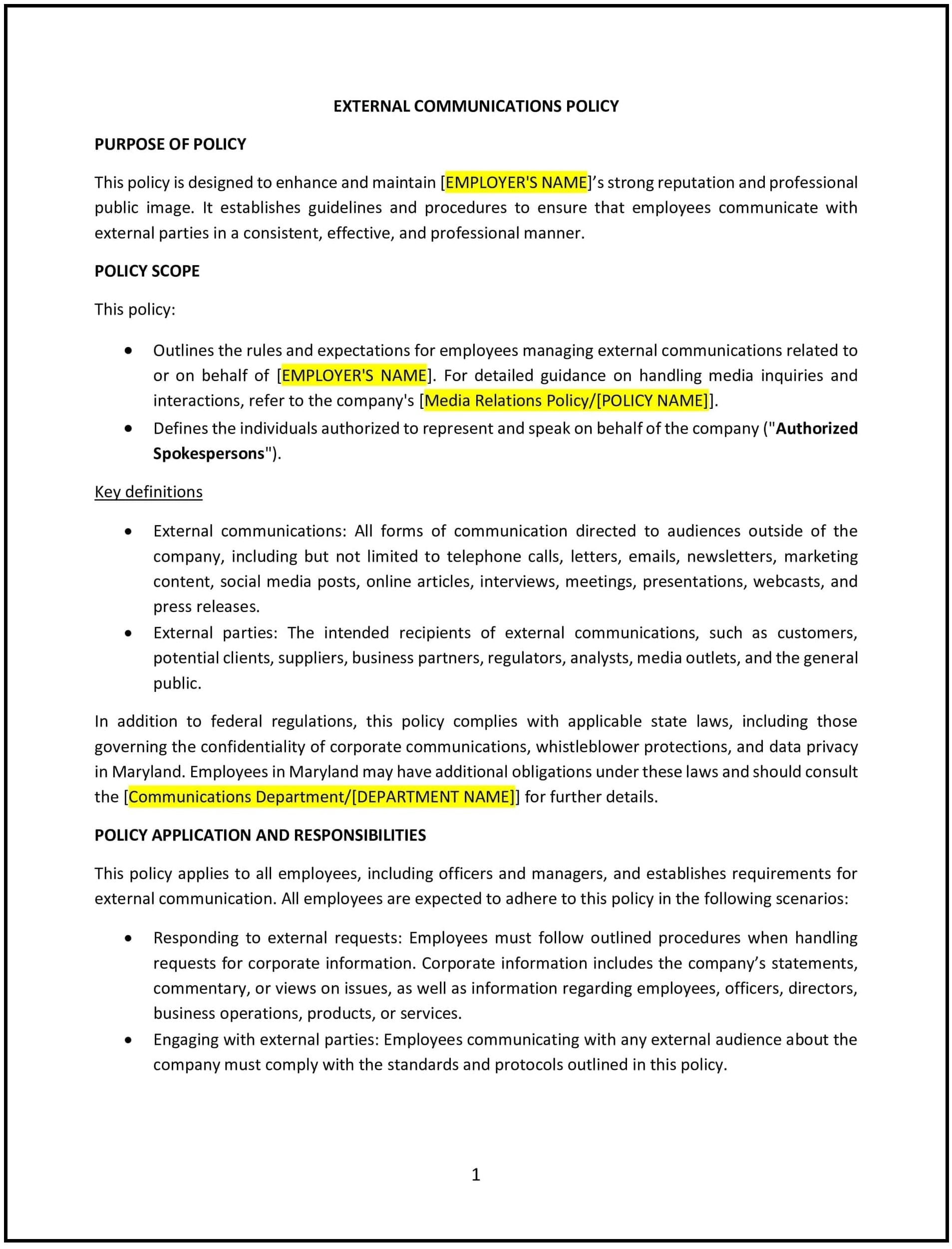External communications policy (Maryland): Free template
Got contracts to review? While you're here for policies, let Cobrief make contract review effortless—start your free review now.

Customize this template for free
External communications policy (Maryland)
This external communications policy is designed to help Maryland businesses manage how employees interact with external stakeholders, including clients, media, vendors, and the public. It provides clear guidelines to ensure consistent messaging, protect the company’s reputation, and prevent the disclosure of sensitive information.
By adopting this policy, Maryland businesses can promote professionalism, safeguard proprietary information, and maintain effective communication strategies.
How to use this external communications policy (Maryland)
- Define external communication channels: Specify the approved methods for external communication, such as email, phone, social media, or press releases.
- Assign spokespersons: Identify who is authorized to represent the business in public or respond to media inquiries.
- Set approval processes: Require pre-approval for external messages, including marketing materials, press releases, or statements to stakeholders.
- Emphasize confidentiality: Prohibit the sharing of sensitive or proprietary information without proper authorization.
- Outline social media guidelines: Provide rules for employee use of social media when referencing the business.
- Include crisis communication protocols: Detail how external communications will be handled during emergencies or sensitive situations.
- Reflect Maryland-specific considerations: Address any state-specific requirements, such as compliance with local regulations for advertising or public statements.
Benefits of using this external communications policy (Maryland)
Implementing this policy provides Maryland businesses with several advantages:
- Protects reputation: Ensures consistent and professional communication with external audiences.
- Safeguards information: Prevents unauthorized disclosure of confidential or proprietary data.
- Reduces risk: Minimizes the potential for miscommunication or legal issues arising from public statements.
- Promotes clarity: Establishes clear roles and processes for managing external communications.
- Enhances trust: Builds credibility with clients, partners, and the public through well-managed interactions.
Tips for using this external communications policy (Maryland)
- Communicate roles: Ensure employees understand who is authorized to speak on behalf of the business.
- Train employees: Provide training on handling external inquiries and managing sensitive information.
- Monitor social media: Regularly review social media mentions and employee activities to ensure alignment with the policy.
- Establish escalation protocols: Define procedures for escalating complex or sensitive issues to senior management.
- Stay informed: Update the policy to reflect changes in Maryland laws, industry practices, or communication technologies.